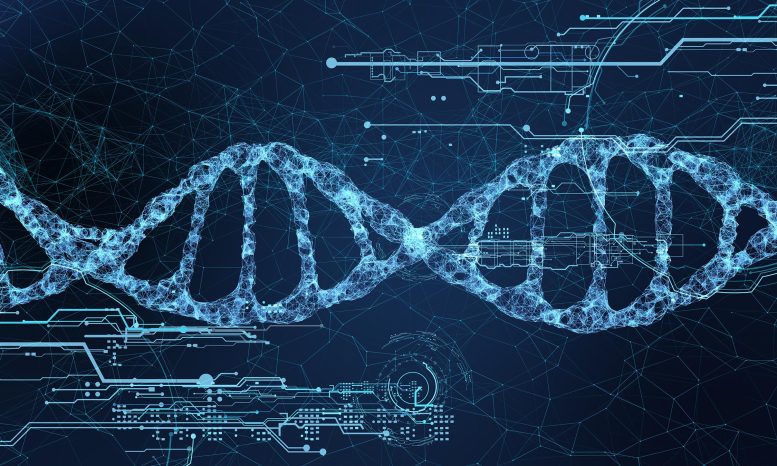
Schizophrenia is a mental disorder that affects a person’s ability to think, feel, and behave clearly. It usually begins in young adulthood and can cause a range of symptoms such as hallucinations, delusions, disorganized thinking, and social withdrawal. While the exact cause of schizophrenia is unknown, it is believed to be a combination of genetic, environmental, and brain chemistry factors.
The largest study of its kind also demonstrated that the risk is shared across ethnicities.
A multi-center study, led by the Icahn School of Medicine at Mount Sinai, has uncovered two previously unknown genes that are associated with schizophrenia. Furthermore, the study uncovered a third gene that carries a risk for both schizophrenia and autism. The research also demonstrated that the risk of schizophrenia associated with these rare damaging genetic variants is consistent across different ethnicities. The findings of this study could lead to the development of new treatments for these disorders.
The findings were recently published in the journal Nature Genetics.
Schizophrenia affects approximately 1 in every 100 people and is considered one of the most severe mental illnesses. It can disrupt a person’s thoughts, emotions, and behaviors, causing them to feel disconnected from reality. This can be a distressing experience for both the individual with schizophrenia and their loved ones.
In the study—the first known work of its kind to investigate schizophrenia risk across diverse populations, particularly those of African ancestry—the investigators found the two risk genes, SRRM2 and AKAP11, by comparing the gene sequences of people with schizophrenia to those of healthy controls. The meta-analysis involved existing datasets totaling up to 35,828 cases and 107,877 controls.
The work builds upon a recent study that identified 10 risk genes for schizophrenia. However, unlike the current research, the earlier study was conducted in people of predominantly white European ancestry.
“By focusing on a subset of genes, we discovered rare damaging variants that could potentially lead to new medicines for schizophrenia,” said lead author Dongjing Liu, Ph.D., a former postdoctoral researcher in the laboratory of Alexander W. Charney, MD, Ph.D., a co-senior corresponding author of the study and Associate Professor of Psychiatry, Genetics and Genomic Sciences, Neuroscience, and Neurosurgery, at Icahn Mount Sinai.
“Also significant: studying people of various ancestral backgrounds, we found that rare damaging variants in evolutionarily constrained genes confer a similar magnitude of schizophrenia risk among those different populations and that genetic factors previously established in predominantly white people have now been extended to non-whites for this debilitating disease.”
The third gene flagged in the study, PCLO, was previously implicated in schizophrenia but is now identified as having a shared risk for schizophrenia and autism. That finding raises a question about how we think about brain diseases as a whole, suggested Dr. Charney.
“It’s been known that there are genetic components shared among illnesses. Clinically, genes could look different in the same family. The same variant in the same family may cause autism in one family member and schizophrenia in another. The idea of the same gene having different manifestations is very interesting to us, as it could be useful when it comes to treating people in the clinic.”
The researchers caution that not every patient has a rare damaging variant in the identified schizophrenia genes. The disease is multifactorial and there is no single factor.
Next, the researchers plan to assess whether and how these genes may have a clinical role and may be tied to a specific behavior or symptom of schizophrenia. They will also work to identify drugs that might target the genes in the study.
“We wanted to continue the insightful work of my and Dr. Charney’s deceased mentor, Pamela Sklar, MD, Ph.D., a psychiatrist, geneticist, and neuroscientist whose conceptualization of the study design to first select genes and then investigate them in a large number of cases and controls was a revolutionary idea,” said Laura M. Huckins, Ph.D., co-senior corresponding author on the study, formerly with Icahn Mount Sinai and now an Associate Professor of Psychiatry at the Yale School of Medicine.
“This work wouldn’t have been possible without the enormous global collaboration and how willing people were to work with us. Our ultimate shared goal in the field is to improve patients’ lives, and we are grateful to our collaborators who partnered with us on this effort.”
Reference: “Schizophrenia risk conferred by rare protein-truncating variants is conserved across diverse human populations” by Dongjing Liu, Dara Meyer, Brian Fennessy, Claudia Feng, Esther Cheng, Jessica S. Johnson, You Jeong Park, Marysia-Kolbe Rieder, Steven Ascolillo, Agathe de Pins, Amanda Dobbyn, Dannielle Lebovitch, Emily Moya, Tan-Hoang Nguyen, Lillian Wilkins, Arsalan Hassan, Psychiatric Genomics Consortium Phase 3 Targeted Sequencing of Schizophrenia Study Team, Katherine E. Burdick, Joseph D. Buxbaum, Enrico Domenici, Sophia Frangou, Annette M. Hartmann, Claudine Laurent-Levinson, Dheeraj Malhotra, Carlos N. Pato, Michele T. Pato, Kerry Ressler, Panos Roussos, Dan Rujescu, Celso Arango, Alessandro Bertolino, Giuseppe Blasi, Luisella Bocchio-Chiavetto, Dominique Campion, Vaughan Carr, Janice M. Fullerton, Massimo Gennarelli, Javier González-Peñas, Douglas F. Levinson, Bryan Mowry, Vishwajit L. Nimgaokar, Giulio Pergola, Antonio Rampino, Jorge A. Cervilla, Margarita Rivera, Sibylle G. Schwab, Dieter B. Wildenauer, Mark Daly, Benjamin Neale, Tarjinder Singh, Michael C. O’Donovan, Michael J. Owen, James T. Walters, Muhammad Ayub, Anil K. Malhotra, Todd Lencz, Patrick F. Sullivan, Pamela Sklar, Eli A. Stahl, Laura M. Huckins and Alexander W. Charney, 13 March 2023, Nature Genetics.
DOI: 10.1038/s41588-023-01305-1

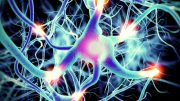
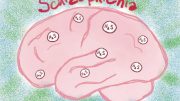



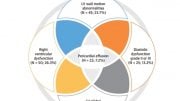

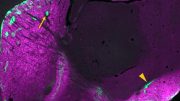
Be the first to comment on "Researchers Have Identified Two Previously Unknown Genes Linked to Schizophrenia"